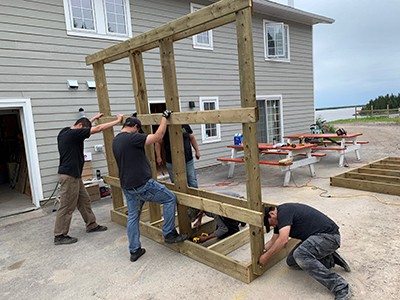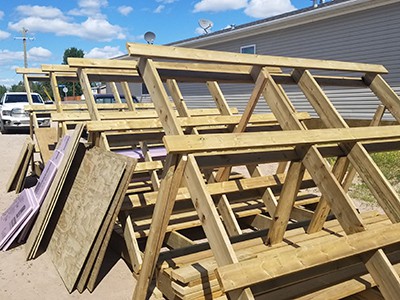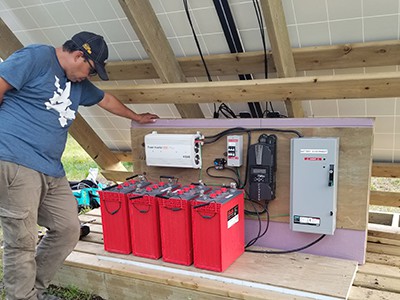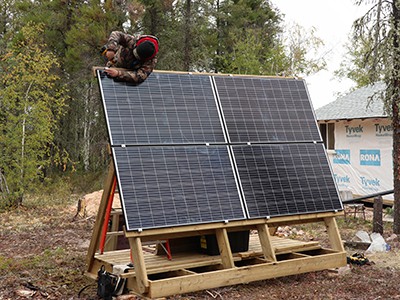Solar On The Land
Off grid, independent, solar PV systems are being deployed on remote cabins across the Athabasca delta.
This brings Fort Chipewyan residents clean, reliable energy to remote cabins.
- Hunting and fishing is an integral part of Indigenous culture and many Fort Chipewyan residents have remote cabins in Northern Alberta.
- These cabins traditionally have had no power and have relied on gasoline generators.
- Generators emit toxic fumes, greenhouse gases, create excessive noise and require fuel to be continually transported to the location.
- By installing solar PV’s with batteries, the residents have created a cleaner, more comfortable environment.
 How the Program Started
How the Program Started
- The program started with questions from elders about solar energy, to see if it made sense for their community.
- 3NE’s massive 2.2 Mw solar farm was a very significant advancement for the community but not interesting on an individual basis.
- The elders wanted to know how to get solar into individual’s hands on the land they traditionally hunted and fished.
 What Has Been Done So Far
What Has Been Done So Far
- The program started with the ACFN, however, after the other nations witnessed the benefits of solar on the land, the program now includes all 3 nations: the Athabasca Chipewyan First Nation, the Mikisew Cree First Nation and Fort Chipewyan Metis Association.
- The 1st year saw solar PV installations at 28 cabins.
- The program has also given an opportunity to training local people on building and maintaining solar PV systems.
 Future Plans
Future Plans
- The completed solar PV installations and owner satisfaction has generated interest in continuing the program.
- This will give opportunity to train more community members in a trade that will only grow in the future and help support more solar within the community.
- The program’s objective is to include every Fort Chipewyan cabin in the program, however this is subject to future funding.